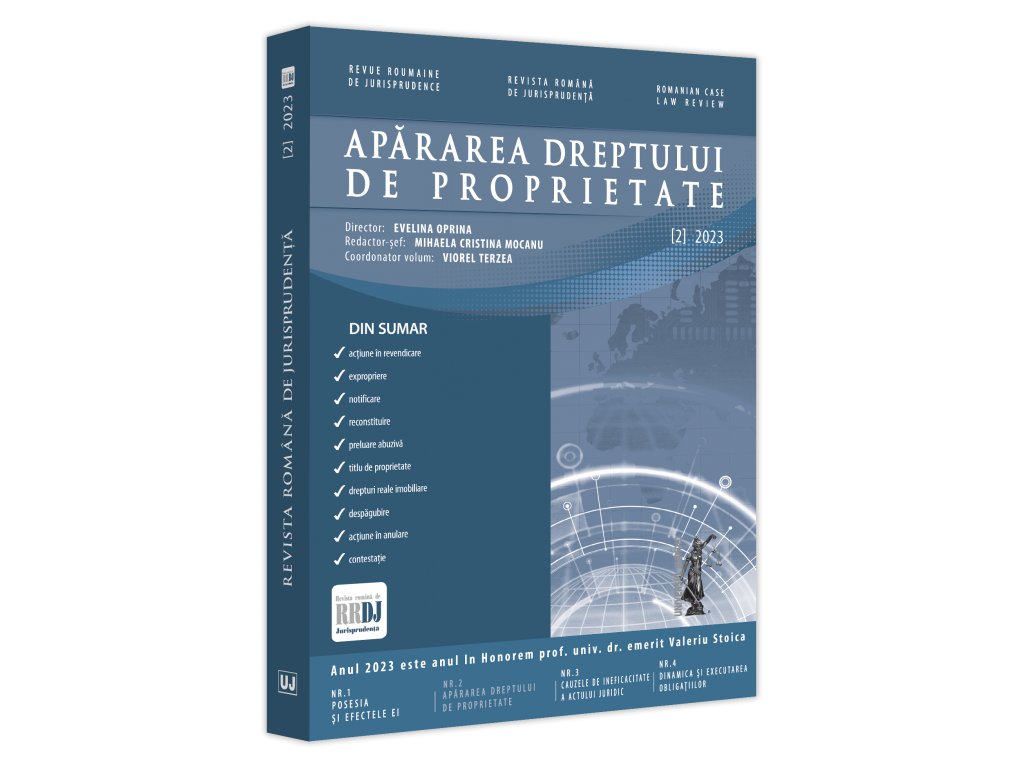Considerations on the treatment of claims against an insolvent professional in the context of the interference of the procedure regulated by Law 85/2014 with criminal law. The issue of violation of the right to private property
DEZBATERI
Abstract
There is a principle of law that the public interest and the private interest should always be in harmony, otherwise either can lose legitimacy in the eyes of the other. Therefore, although there may be (and indeed it is natural that there should be) competition between the holders of these conflicting interests, they should never come into conflict, because the law itself should prevent the premise of a conflict arising. But the tension can also be generated by a wrong judicial practice, such as the one that arose when the insolvency proceedings governed by Law No 85/2014 on insolvency prevention and insolvency proceedings intersected with criminal proceedings in which the measure of attachment was ordered, leading to the impairment of the possibility for creditors with certain claims to have their rights satisfied which, in practice, came to be considered inferior to uncertain rights claimed by the budgetary creditor. In a preliminary ruling and an appeal in the interest of the law, the Supreme Court resolved this conflict. But also Law no. 85/2014 itself has some shortcomings, because in some respects it has failed to strike a balance between the interests of the state and the interests of private creditors, either because it has given the latter an advantage over their legitimate interest in claiming timely recovery or, conversely, because the state, where the issue at stake is the possible seizure of an asset belonging to the debtor's estate, has been granted that specific power to restore the legal order beyond its natural, legitimate limits, that is to say, even where the asset in question had been encumbered by a right in rem in favour of a creditor in good faith. Normally, the Constitutional Court should have recognised that this situation constitutes a violation of the private property right of which the mortgagee is the holder, but unfortunately the Court validated the legal provisions under criticism.
This study reviews the issues resolved by the binding case law of the Supreme Court and analyses, at length, the provisions of Article 91(1) sentence II of Law no. 85/2014 which were the subject of the exception of unconstitutionality rejected by a decision of the Constitutional Court in March this year.
Keywords: mortgage right/mortgagee, attachment (criminal), seizure, unsecured creditor, secured claim, budgetary creditor/creditor, uncertain claim, insolvency, foreclosure








